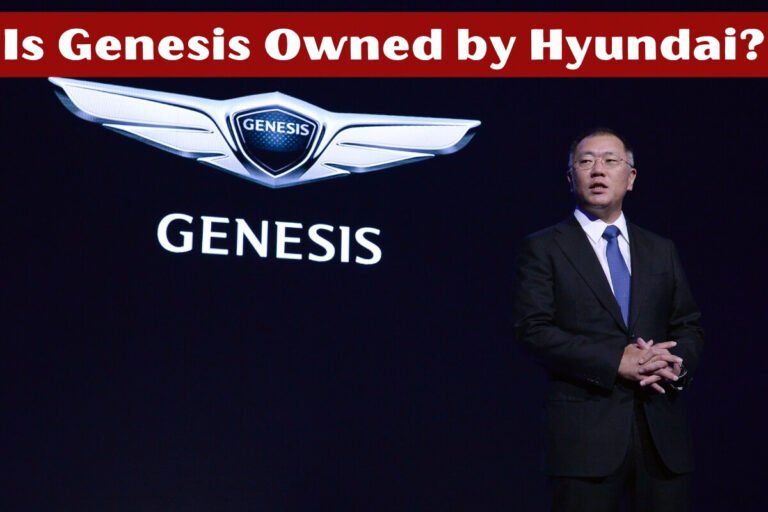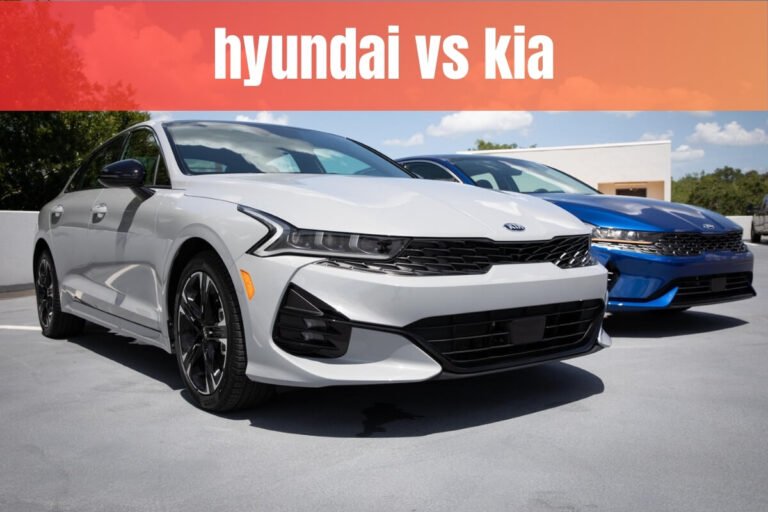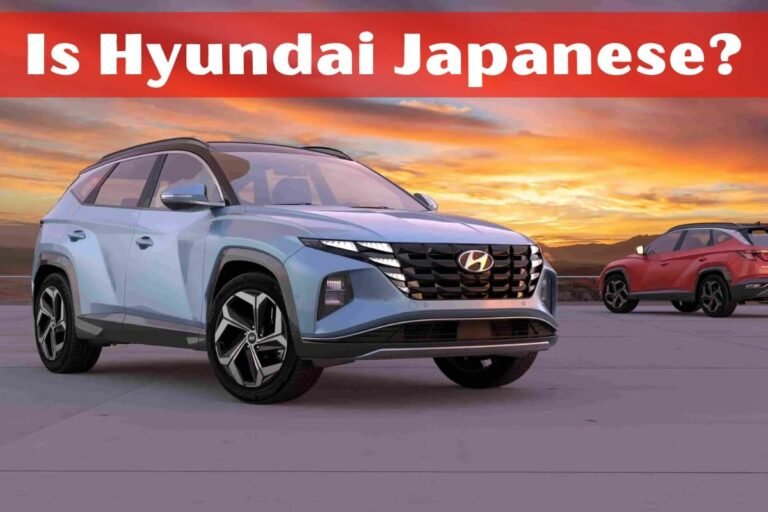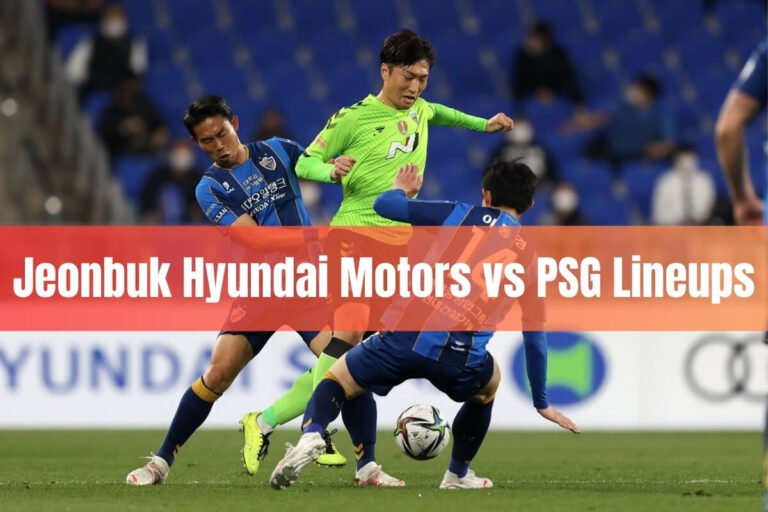Who Owns Hyundai? Unveiling the Automotive Giant’s Ownership

In the ever-evolving landscape of the automotive industry, Hyundai has emerged as a formidable force, captivating consumers worldwide with its innovative vehicles and unwavering commitment to quality. As one of the largest and most influential car manufacturers, the question of “Who Owns Hyundai?” piques the curiosity of many. The answer, however, is not as straightforward as it may seem.
Hyundai is owned by the Hyundai Motor Group, a multinational conglomerate based in South Korea. The Group also has ownership stakes in other prominent automotive brands like Kia and Genesis.
This comprehensive blog post delves into the intricate details of Hyundai’s ownership structure, shedding light on the companies, individuals, and entities that shape the brand’s destiny. We’ll explore the parent company’s history, its strategic acquisitions, and the key players instrumental in Hyundai’s global success. Additionally, we’ll uncover the brand’s manufacturing footprint, unveiling where these vehicles come to life and the factors that contribute to Hyundai’s widespread acclaim.
The Hyundai Motor Group: At the Helm of an Automotive Empire
To truly understand who owns Hyundai, we must first examine the Hyundai Motor Group, the conglomerate that serves as the brand’s parent company. Founded in 1967 by the late Chung Ju-yung, the Hyundai Motor Group has grown from humble beginnings to become a dominant force in the global automotive market.
A Legacy of Perseverance and Innovation
Chung Ju-yung’s remarkable journey from a poverty-stricken childhood to becoming the founder of one of the world’s largest automakers is a testament to the power of perseverance and innovation. Born into a farming family in what is now North Korea, Chung’s early years were marked by hardship and adversity. However, his unwavering determination and entrepreneurial spirit propelled him to establish the Hyundai Engineering and Construction Company in 1947, laying the foundation for the Hyundai Motor Group’s future success.
Expanding the Automotive Empire
Over the decades, the Hyundai Motor Group has strategically expanded its portfolio, acquiring and establishing various automotive brands to cater to diverse consumer preferences. In 1998, the Group acquired a significant stake in Kia Motors, another South Korean automaker, solidifying its position in the domestic and international markets.
Moreover, in 2003, the Hyundai Motor Group introduced the luxury brand Genesis, catering to the high-end segment of the automotive market. This strategic move allowed the Group to compete directly with established premium brands, further diversifying its offerings and solidifying its global presence.
Hyundai’s Ownership Structure: Unraveling the Web
While the Hyundai Motor Group serves as the parent company, Hyundai’s ownership structure is a complex tapestry woven by various stakeholders, each playing a crucial role in shaping the brand’s future.
Key Ownership Stakes
- Hyundai Mobis Co. Ltd.: As one of the largest shareholders, Hyundai Mobis, a prominent automotive parts supplier, holds an 8.73% stake in Hyundai Motor Company.
- Kia Corporation: Hyundai Motor Group’s acquisition of Kia Motors in 1998 resulted in Kia Corporation becoming a significant shareholder, owning 26.20% of Hyundai’s shares.
- National Pension Service of Korea: The National Pension Service of Korea, one of the world’s largest pension funds, holds a 3.11% stake in Hyundai Motor Company.
- Hyundai Rotem Company: A subsidiary of the Hyundai Motor Group specializing in railway vehicles and systems, Hyundai Rotem Company controls 7.03% of Hyundai’s shares.
Individual Shareholders and Executive Leadership
While institutional investors hold substantial ownership stakes, Hyundai’s leadership and key individuals also play a pivotal role in shaping the company’s direction.
- Euisun Chung: The current chairman of the Hyundai Motor Group, Euisun Chung, holds a 1.07% ownership stake in Hyundai Motor Company. As the son of the late Chung Mong-koo, he represents the third generation of the Chung family’s leadership in the Hyundai empire.
- José Muñoz: Appointed as the president and chief operating officer (COO) of Hyundai Motor Company and Hyundai Motor North America in 2019, José Muñoz holds a 0.000952% stake in the company.
Hyundai’s Global Manufacturing Footprint
Hyundai’s vehicles are not only owned by a diverse group of stakeholders but also manufactured across multiple locations worldwide, catering to the growing demand for its products in various markets.
Domestic Production Hubs
Hyundai’s roots can be traced back to its home country of South Korea, where the company operates several state-of-the-art manufacturing facilities. The Ulsan Plant, located in Ulsan, is Hyundai’s largest integrated automobile manufacturing facility, with an annual production capacity of 1.6 million units.
International Manufacturing Presence
To meet the global demand for its vehicles, Hyundai has established manufacturing plants in strategic locations around the world, including:
- United States: Hyundai’s manufacturing facility in Alabama, which began operations in 2005, serves as a crucial production hub for the North American market.
- India: Hyundai Motor India Limited, established in 1996, operates a production plant near Chennai, catering to the rapidly growing Indian automotive market.
- Turkey: Hyundai Assan Otomotiv Sanayi, a joint venture between Hyundai and Kibar Holding, has a manufacturing facility in Izmit, Turkey, serving the European and Middle Eastern markets.
- China: Hyundai has several joint venture manufacturing plants in China, including Beijing Hyundai Motor Company and Dongfeng Yueda Kia Motors, to cater to the vast Chinese automotive market.
By establishing a global manufacturing presence, Hyundai ensures efficient production and distribution of its vehicles, meeting the diverse needs of consumers worldwide.
The Future of Hyundai: Embracing Innovation and Sustainability
As the automotive industry continues to evolve, Hyundai remains at the forefront of innovation, embracing cutting-edge technologies and sustainable practices to shape the future of mobility.
Electrification and Alternative Fuel Vehicles
Recognizing the growing demand for eco-friendly transportation solutions, Hyundai has made significant strides in the development of electric vehicles (EVs) and alternative fuel vehicles. The company’s dedicated electric vehicle brand, Ioniq, showcases its commitment to sustainable mobility, offering a range of fully electric and hybrid models.
Autonomous Driving and Connected Car Technologies
Hyundai is also actively investing in autonomous driving and connected car technologies, aiming to enhance safety, convenience, and the overall driving experience. Through strategic partnerships and in-house research and development efforts, the company is paving the way for the future of intelligent and connected vehicles.
Sustainability and Corporate Social Responsibility
Beyond its innovative products, Hyundai is committed to sustainable practices throughout its operations, focusing on reducing its environmental impact and promoting corporate social responsibility initiatives. The company’s efforts include implementing eco-friendly manufacturing processes, investing in renewable energy sources, and supporting local communities through various social and educational programs.
As the automotive industry continues to evolve, Hyundai’s ownership structure, global manufacturing footprint, and commitment to innovation position the brand as a formidable force, poised to shape the future of mobility for generations to come.
In conclusion
while the question “Who Owns Hyundai?” may seem straightforward, the answer reveals a complex tapestry of stakeholders, from the Hyundai Motor Group and institutional investors to individual shareholders and executive leadership. Hyundai’s success can be attributed to the collective efforts of these entities, combined with the brand’s unwavering dedication to quality, innovation, and sustainability. As the automotive industry continues to evolve, Hyundai remains well-positioned to navigate the challenges and opportunities that lie ahead, solidifying its position as a global powerhouse in the ever-changing automotive landscape.






